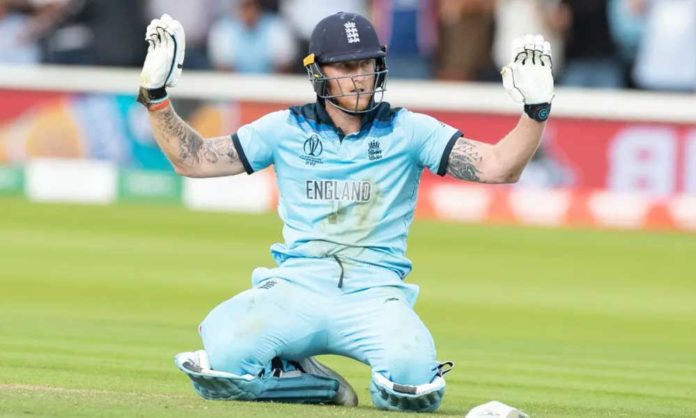Ben Stokes is arguably the best all-rounder of the current era, and he proved it time and time again across all formats. He was handed the reigns of England’s test team recently, and along with new coach McCullum, he managed to instill a new sense of self-belief and courage in the English team. However, he shocked the world, when he announced retirement from ODI cricket citing workload pressure.
Ben Stokes urged the authorities to stop considering players as “cars” while talking about England’s hectic schedule. “You can’t just fill us up and we’ll go out there and be ready to be fuelled up again,” Stokes said, in the hope that his words would be a wake-up call to create a more manageable schedule.
The retirement of Ben Stokes spurred a debate on workload management, as well as the importance of ODI cricket in this era, where the glamour of T20 Cricket and the charm of Test cricket are more attractive to players. This whole debate has raised the question of whether ODI cricket is dying.
Is ODI Cricket Dying?
Many former players are of the opinion that due to the physical demands of competing in all three forms of the game, it will be impossible for players to compete in all three formats of the game. As a result, players often choose to retire from ODI in order to extend their careers, considering the financial benefits and entertainment value of T20 cricket, and test cricket being the ultimate format of cricket.
ODI cricket’s future was further thrown into sharp perspective when South Africa jeopardized their World Cup ambitions by pulling out of their January series against Australia in order to focus on their new T20 league. This has put the priorities of cricket boards on the table as well. Nowadays, bilateral series consist of more T20s than ODIs, on top of that, in some bilateral series, ODI matches were totally scrapped to add more T20s.
This is evident from the fact that from the World Cup 2019 to July 26, 2022, only 246 ODIs have been played, out of which, 96 have been played by non-Test playing nations. On the other hand, 868 T20s have been played since July 2019. There have also been 121 Tests in the same period, which will account for 605 days of red-ball cricket, almost thrice the number of ODI matches.
On the other hand, T20 franchise cricket, which started in 2007 with IPL, has totally changed the landscape of cricket across the globe. Almost every country has launched its own T20 league in the last few years. On top of that, 10-overs (ten-overs cricket) and The Hundred (hundred-ball innings cricket) are also gaining popularity, and it is more likely that many more players will move away from fifty-overs cricket in the future in favor of these formats.
What do cricket experts think?
Ben Stokes’ retirement has divided the cricket fraternity, and everyone agrees. Ever since, Ben Stokes’ retirement, many former cricketers have come out in the favor of his decision, citing the overabundance of cricket throughout the year. Some think ODI cricket is losing its charm with time and many more players are in line to quit the format, while on the other side, some of them blame the plethora of T20 leagues for the decline in the importance of ODI cricket.
❤️🏴 pic.twitter.com/xTS5oNfN2j
— Ben Stokes (@benstokes38) July 18, 2022
Former captain Shahid Afridi suggested that ODIs should be reduced to 40 overs to keep their importance. “One-day cricket has become quite boring now. I would suggest to cut ODI cricket from 50 overs to 40 overs in order to make it entertaining,” Afridi had said on a TV channel.
Shahid Afridi has an interesting suggestion on ODI format of the game. #CricTracker #ShahidAfridi #ODI #PakistanCricket #CricketTwitter pic.twitter.com/usgazM5y5s
— CricTracker (@Cricketracker) July 22, 2022
Former India coach Ravi Shastri has also expressed the same views. “There is no harm in shortening the span of the game. When one-day cricket started, it was of 60 overs. After that, people thought that 60 overs were a bit too long. So they reduced it from 60 to 50. Years have gone by now since that decision so why not reduce it from 50 to 40. Because you have to be forward-thinking and evolve. It stayed for 50 for too long,” Shastri said during commentary in the 2nd ODI between India and West Indies.
Ravi Shastri echoes Shahid Afridi's sentiments on ODI cricket, shares idea to make format interesting again https://t.co/OBBaHRQsDs
— Times Now Sports (@timesnowsports) July 26, 2022
While, Afridi and Shastri, think ODI cricket should be altered to make it more interesting, some players think that the ODI format should be scrapped altogether. Former Pakistan captain Wasim Akram has said on BBC Podcast, “One-day cricket is just a drag now, especially after T20. The leagues all around the world, there’s a lot more money. I suppose this is part and parcel of modern cricket — T20 or test cricket. One-day cricket is kind of dying.”
'One day cricket is just a drag now… it's kind of dying' @WasimAkramlive joined @MichaelVaughan, @philtufnell, and @_BenWright_ to give his take on the future of the 50 over game. 🏏
— Telegraph Cricket (@telecricket) July 23, 2022
This statement of Akram did not sit well with many fans and players, including former captain Salman Butt. He has voiced his opinion about Wasim Akram’s stance on his YouTube channel, “Wasim Bhai is our legend. Who are we to say anything to him. I respect his opinion, but he also has 500 wickets in ODIs only. The two deliveries he bowled in the World Cup that everyone remembers; you won’t see them in T20s. There’s not enough time in that format. He was the man of the match in the World Cup final.”
Salman Butt responds to Wasim Akram's remarks on the "dying" future of ODIs 🏏
Read more 👉 https://t.co/1D5PeOzptw#SalmanButt #WasimAkram #ODI #Pakistan #CricketTwitter pic.twitter.com/8wbAHNCYQF
— CricWick (@CricWick) July 25, 2022
Butt further added, “One-dayers have big tournaments, but there are no leagues in it. So, if someone is facing exhaustion with a packed schedule, they prefer to retire from ODIs. This way, they can have a cash-rich option in T20s and the long format one in Tests”
Australian opener Usman Khawaja said, “I feel like that’s probably the third-ranked out of all of them. I think personally one-day cricket is dying a slow death…there’s still the World Cup, which I think is really fun and it’s enjoyable to watch, but other than that, even myself personally, I’m probably not into one-day cricket as much either.”
Australia's opening batter Usman Khawaja feels that ODI cricket is "dying a slow death"#Cricket #CricTracker #UsmanKhawaja #Australia #ODI pic.twitter.com/uTxFjtJTFS
— CricTracker (@Cricketracker) July 23, 2022
Blackcaps head coach Gary Stead has responded to Australian batsman Usman Khawaja’s claim. He said, “I think it’s a great mix of a little of Test match cricket at times where you do have to grind out some tough periods and also the excitement of T20 cricket and I think the skills of T20 cricket have made ODI scoring go to another level again. I hope it’s not a dying art, I think it’s a great game still to be part of.”
New Zealand head coach defends ODI format.#ODICricket https://t.co/wTrUUz5zCW
— News18 CricketNext (@cricketnext) July 27, 2022
ICC (International Cricket Council) also expressed their views on the ongoing debate about the threats faced by the ODI format. The ICC has denied any threats to the ODI format, citing a ‘healthy’ number of 50-over fixtures to be played in the 2023-27 cycle.
“I think at this stage there is some discussion, not specifically about ODIs, but about the mix of formats within the calendar,” Geoff Allardice said.https://t.co/BJfrtyX6zm
— Circle of Cricket (@circleofcricket) July 28, 2022
ICC chief executive Geoff Allardice has recently talked about the scheduling of the game’s three formats and shared that the issue was discussed during the annual general meeting in Birmingham where the Future Tour Program (FTP) 2023-27 was finalized.
“I think at this stage there is some discussion, not specifically about ODIs but about the mix of formats within the calendar. So in the FTP, I don’t think you will see any significant change to the number of ODIs or the proportion of ODIs as being planned” Allardice said in a video conference.
Actually, 50 overs are now becoming a drag! Do you also feel the same? #INDvWI
— Vikrant Gupta (@vikrantgupta73) July 24, 2022
This is a long debate as to whether ODI cricket is on its deathbed or not, and there are opinions on both sides. Some think it should be scrapped, while others stress it’s important and how it should be saved from the plethora of T20 cricket. However, if ODI cricket is dying then the ICC and cricket boards are to be blamed for not giving the required importance to the 50-over format in this era of T20 leagues and World Test Championship.







































